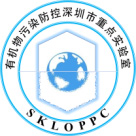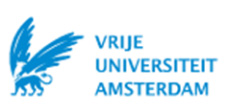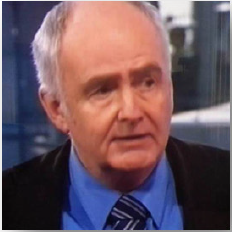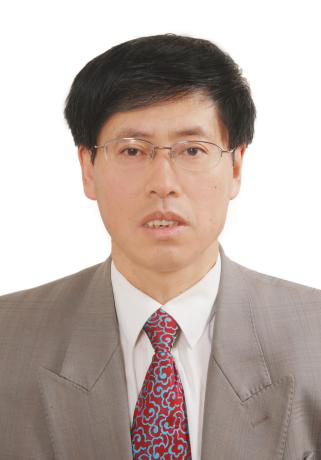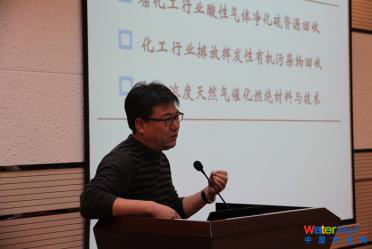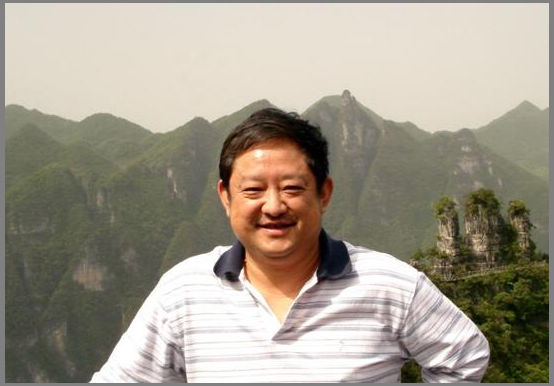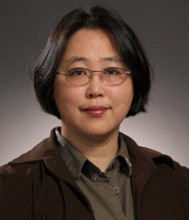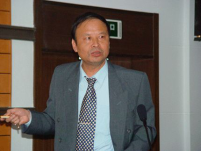- Home
- Scientific committee
- Organizing committee
- Topics
- Important Dates
- Submission of Abstract
- Invitation speakers
- Payment
- Registration Fee
- Symposium Venue
- Accommodation
- Transportation
- Social Programme
- Special Issues
- Contact Us
- SKLOPPC
1) Jacob de Boer: Towards fire safety without chemical risk
Dr. Jacob de Boer is a professor in Environmental Chemistry and Toxicology, the head of the Dep. Environmental and Health, Vrije University Amsterdam, the Netherlands. He is also Editor-in-Chief of Chemosphere (Elsevier). In 2013 he was appointed by the Chinese government as National Expert for China for the period 2013-2018. He is a member of the CEFIC LRI Scientific Advisory Panel (ESAP), the Board of the International BFR symposia series, and the QUASIMEME Scientific Advisory Board. He has coordinated a number of European Research projects and a large number of research projects for international organizations and industrial organizations. He has published over 200 peer reviewed articles, 20 book chapters and one book on the analysis and monitoring of environmental contaminants. He has organized many workshops, is a regular contributor to radio and television documentaries and news programs on chemical substances, and he is a regularly invited speaker at international symposia. Dr. de Boer is also an advisor for UNEP and various other international organizations. He is member of the editorial board of the Handbook of Environmental Chemistry (Springer), and was guest-editor of special issues for Trends in Analytical Chemistry (2006, 2013), Chemosphere (2008, 2010, 2013, 2016), Molecular Nutrition and Food Research (2008), and Journal of Chromatography A (2009).
2)Hong He:Aging of soot and its role in catalytic oxidation
Heidelore ("Heidi") Fiedler is a professor of chemistry and joined the MTM Research Centre in July 2015. She brings 15 years of professional experience from the United Nations Environment Programme (UNEP) where she was responsible for the Science and Risk Team. Prior to the UNEP assignment she worked as a senior researcher at the University of Bayreuth (Germany) and the Bavarian Institute for Waste Research (BIfA, Augsburg, Germany).My research focus is on environmental chemistry from identification and quantification of sources of (persistent organic) pollutants through environmental fate and transport to human exposure and effects in humans and the environment.I am also a Distinguished Visiting Professor of Tsinghua University (Beijing, China), where I am collaborating with the School of Environment, POPs Research Centre.
6) Paul Westerhoff: Effect of wastewater discharges on organic pollutants in rivers and drinking water facilities across the USA and Yangtze River Basin,China
Distinguished Sustainability Scientist, Julie Ann Wrigley Global Institute of Sustainability Vice Provost for Academic Research Programming, Office of the University Provost Regents' Professor, School of Sustainable Engineering and the Built Environment, Ira A. Fulton Schools of Engineering Affiliated Faculty, Center for Biodiversity Outcomes, Julie Ann Wrigley Global Institute of Sustainability.
7) David Reckhow:Impacts of climate change on disinfection byproducts in drinking water
8) Ravindra Kumar Sinha:Biodiversity Conservation and Sustainable Development
Prof. (Dr.) Ravindra Kumar Sinha, M.Sc. Ph.D. (Patna University, Patna) is currently the Vice Chancellor of the Nalanda Open University, Patna since 2nd May, 2017. An internationally acclaimed scientist and Nature conservationist, Prof. Sinha served as faculty member in Patna University for about 40 years. For brief stint of two years, he was appointed as Professor and Head of the Centre for Environmental Sciences of the Central University of Bihar on invitation of the Executive Council of the Central University of Bihar in 2010, where he also held the position of Dean of the School of Earth, Biological and Environmental Sciences for two years. He served as Expert Member of the National Ganga River Basin Authority (2009-2014) under the chairmanship of the Prime Minister of India; Prof. Sinha successfully completed over 20 nationally and internationally funded Research Projects on environmental issues, especially on River Ganga and Ganges River dolphin and Atmospheric pollution. He collaborated with scientists of USA, UK, Japan, China, Germany, Canada, Colombia, and India for quality research. Two documentaries, “Alert on the Ganges” (in French) and “Mr. Dolphin Sinha: Think Globally Act Locally” (in English) were produced by a French Producer, Christian Gallissian, in 2007 from Paris on the works of Prof. Sinha. TIMES NOW, an English TV Channel selected Prof. Sinha as “Amazing Indian” in 2011; and CNN-IBN TV Channel selected as “Positive Indian” in 2013. He served as visiting Professor at Wadsworth Centre of Health, and State University of New York at Albany, New York, USA in 2013. Prof. Sinha is best known for his pioneer research and conservation efforts to save the Ganges River dolphin, India’s National Aquatic Animal, from extinction. He is an elected Fellow of the Linnean Society of London since 1996, recipient of several honors and awards, including the most excellent order of the Netherlands, “the Order of the Golden Ark”, by His Royal Highness Prince Bernhard of the Netherlands in 1999; he has been named officer of the Order of the Golden Ark of the Netherlands; the Swarna Jayanti Puruskar of the National Academy of Sciences, India in 2000; E. P. Odum Gold Medal by ISEC; and “Padma Shri”, the fourth highest civilian award, by the President of India in 2016. He is popularly known as “Dolphin Man of India”.
9)Yongdan Li: Recent progress of selective reduction of NOx with ammonia on CHA zeolites
Professor Yongdan Li, is now the tenured full Professor of Industrial Chemistry in Aalto University, Finland. He was the Changjiang Chair Professor of Industrial Chemistry of Tianjin University, China. He was the Founder and Director of the Tianjin Key Laboratory of Applied Catalysis Science and Engineering at the School of Chemical Engineering and Technology, Tianjin University, China. After finishing his Ph.D. in Industrial Catalysis at Tianjin University in 1989, he went to the University of Twente in the Netherlands and worked there as a post-doc for a year. He did a second post-doc at Ecole National Superior of Industrial Chemistry, Nancy, France. Dr. Li returned to Tianjin University at the end of 1992 where he was promoted to a Full Professor at the beginning of 1994. He has served as the Chairman of the Department of Catalysis Science and Technology and the Coordinator of the Industrial Catalysis Program since 1997 to 2017. This program was twice ranked as the 1st in China, in 2001 and 2006. Dr. Li received the most prestigious award given to Chinese Young Scientists, “The NSF Award to Outstanding Young Scientist” in 2004, and obtained the most important title for professors in China “The Changjiang Chair Professorship” in 2007. He serves now also as the Associate Editor of Catalysis Today and the Associate Editor of the CIESC Journal.
10) Zhen Zhao:Catalyst Design for the Oxidative Removal of PM2.5 Emitted from Vehicles
Professor Zhen Zhao is currently, a Cheung Kong Scholar Distinguished Professor, group leader of Environmental Catalysis at China University of Petroleum–Beijing. Besides, he has another position in Shenyang Normal University as a specially-appointed professor. He is the dean of College of Chemistry and Chemical Engineering, the director of Institute of Catalysis for Energy and Environment and the director of Key Platform for the Science and Technology in Liaonng Province’s Universities. His research is mainly focused on environmental catalysis, catalytic new materials, petrochemical industry catalysis and solid state surface chemistry.
11) Zhengping Hao: Functional Materials and Technologies for VOCs Control and Applications
Dr. Zhengping Hao is the full professor of University of Chinese Academy of Sciences (UCAS) and the research professor of Research Center for Eco-Environmental Sciences (RCEES CAS). He is the director of National Engineering Laboratory for VOCs Pollution Control Material & Technology and the director of Research Center for Environmental Material and Pollution Control Technology, UCAS. The research interests include nano materials, control technologies for water, air and soil, green catalysis, hazardous material treatment, and environmental engineering. His research is funded by the NSFC, MOST, SOE of China, CAS, GM, SIDA and industrials.
14)Kingchuen Lin: Synthesis and characterization of nanomaterials in applications of sensing and catalysis
King-Chuen Lin is a Distinguished Professor of the Department of Chemistry at National Taiwan University and a Distinguished Research Fellow of National Science Council, Taiwan. His research interests are photodissociation and reaction dynamics in gas and condensed phases, atmospheric chemistry, materials designed for sensors and catalysts, and single molecule spectroscopy. He received Academic Award of Ministry of Education, Taiwan, in 2014, and Richard B. Bernstein Award in International Conference on Stereodynamics-2018. He now serves as an Associate Editor for J. Chin. Chem. Soc.(Taipei) and a member of Editorial Board for Scientific Reports (Nature publisher), Journal of Analytical and Bioanalytical Techniques (Gavin Publishers), and J. of Modern Chemical Sciences (Herald Scholarly Open Access). He has published more than 202 peer-reviewed papers and edited one book on reaction dynamics and chemical kinetics.
15) Bing Zhang: H-atom tunneling dynamics in photodissociation of Fluorophenols
Bing Zhang is a professor in Wuhan Institute of Physics and Mathematics. Areas of specialization: mass analyzed threshold ionization spectroscopy and ultrafast dynamics of Molecules. Laser mass spectrometry for environmental and industrial chemical trace analysis
Dr. Myoseon Jang is currently an Associate Professor in the Department of Environmental Engineering Sciences at the University of Florida. Her research focuses on the study of the natural and anthropogenic chemical species involved in atmospheric processes and the analysis of their kinetics, thermodynamics, characterization, and modeling. In 2011, she built the Atmospheric Photochemical Outdoor Reactor (UF-APHOR) dual chambers. It is one of the largest outdoor chambers in the United States, and it is used to study the atmospheric photochemical aging of volatile hydrocarbons and combustion smoke, secondary organic aerosol (SOA) formation, climate forcing effect and adverse health effect of atmospheric particulate matter. Her research on heterogeneous acid-catalyzed reactions of atmospheric organic compounds published in Science has considerably influenced atmospheric aerosol research internationally.
17) Hai Guo: Hazardous volatile organic compounds in ambient air of China
18) YiFan Li: Prediction of slopes and intercepts from log-log correlations of gas/particle quotient and vapor-pressure & octonal-air partition coefficient for SVOCs
Dr. Yifan Li is a professor of the School of Environment, Harbin Institute of Technology, China, and also the Chief Scientist of the International Joint Research Center for Persistent Toxic Pollutants (IJRC-PTS). Before 2013 was a Senior Research Scientist in Environment Canada. Prof. Li’s research interests include environmental modeling and monitoring. During working in Environment Canada, he received the Four Season Award in 2010-2012 for his research work on sources, occurrence and pathways of POPs to Arctic. He has authored/co-authored more than 200 peer-reviewed papers and 5 Canadian National Reports, and has been one of the Most Cited Chinese Researchers for the past three years by Elsevier. Dr. Li serves on editorial advisory board of Ecotoxicology and Environmental Safety. He served as a member of the expert group to revise the “Climate Change and Persistent Organic Pollutants (POPs)”, Stockholm Convention on POPs (2011), Director of Database for Population and Cropland, Global Emissions Inventory Activities (GEIA) (1998-2005), and the Committee member, POPs and Heavy Metals Program, GEIA (1998-2005).

